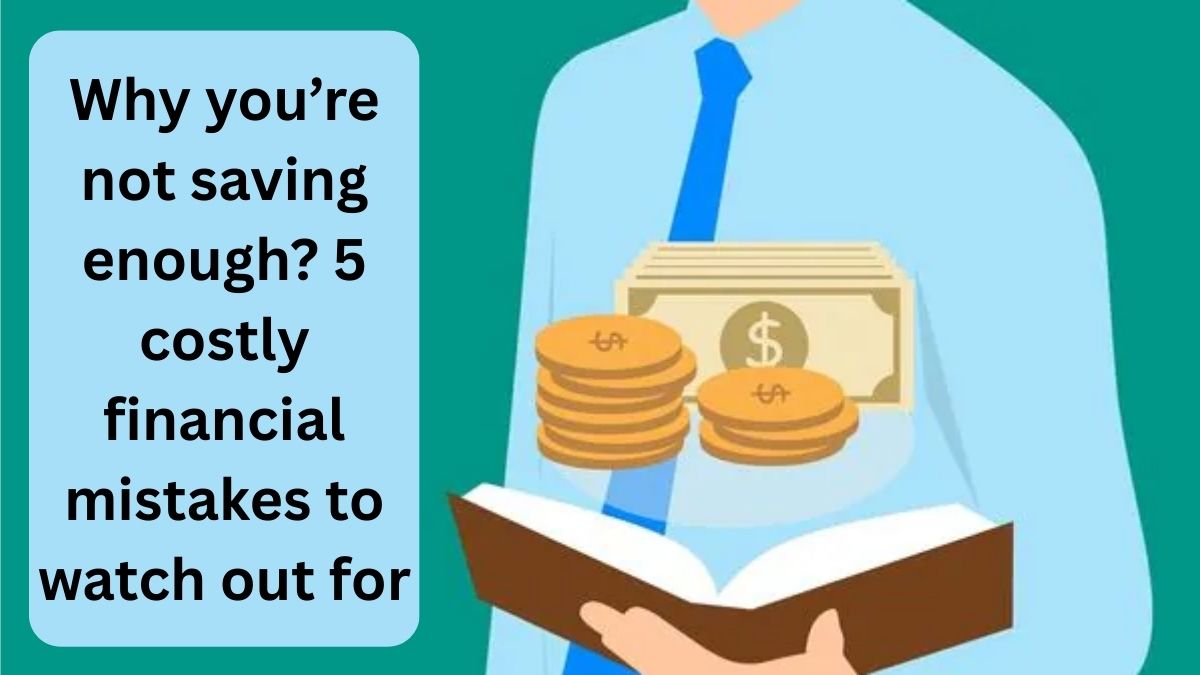In today’s volatile financial environment—marked by rising inflation, unpredictable global markets, and growing economic uncertainty—maintaining financial stability has become more important than ever. Yet, despite increasing awareness about the importance of saving and investing, many individuals in India find themselves struggling to build wealth or even maintain basic savings.
The reality? Often, it’s not a lack of income, but repeated financial missteps that sabotage long-term financial well-being. Let’s explore five of the most common and damaging money mistakes that could be standing between you and your savings goals—and what you can do to avoid them.
1. Skipping the Budget: Flying Blind With Your Finances
One of the most fundamental errors people make is not having a personal budget. A budget is more than just a spreadsheet—it’s a financial roadmap. Without it, you’re essentially guessing how much you earn, how much you spend, and where your money is going.
Lack of budgeting leads to overspending, poor tracking of expenses, and missed opportunities for saving. It also becomes easy to fall into the trap of lifestyle inflation—where your expenses rise as your income increases, leaving little room for growth in savings.
Financial expert Dave Ramsey once said, “A budget is telling your money where to go instead of wondering where it went.” That statement rings especially true in today’s consumer-driven economy. Creating a monthly budget, categorizing your expenses, and regularly reviewing it helps you regain control over your finances.
2. Misusing Credit Cards: Convenience That Can Backfire
Credit cards offer flexibility and rewards, but misuse can lead to financial disaster. Many fall into the trap of spending beyond their means simply because credit is available. This creates a cycle of debt that’s difficult to break, especially when interest rates on credit card balances can soar above 30%.
Unchecked credit card usage not only drains your income through interest payments but also harms your credit score, making future borrowing more expensive or even inaccessible.
To avoid this trap, limit credit card spending to essentials or planned purchases, pay off the full balance every month, and avoid using credit to fund a lifestyle you can’t afford.
3. Not Building an Emergency Fund: A Dangerous Oversight
Emergencies are not a matter of “if”—they’re a matter of “when.” Whether it’s a medical issue, a job loss, or an unexpected car repair, unplanned expenses can arise anytime.
Without a dedicated emergency fund, people are often forced to borrow money, liquidate investments prematurely, or use high-interest credit products—each of which further derails financial stability.
Experts recommend having at least 3 to 6 months’ worth of essential living expenses saved in an easily accessible account. This fund serves as a buffer, protecting your long-term financial goals from short-term disruptions.
4. Postponing Investments: Missing Out on the Power of Compounding
One of the most overlooked wealth-building tools is time. The sooner you start investing, the more your money grows—thanks to the magic of compounding. Unfortunately, many people delay investing, either due to fear, lack of knowledge, or the misconception that one needs a large amount to get started.
Delaying investments means missing out on years of potential growth. Even small amounts invested consistently in equity mutual funds, index funds, or retirement plans can result in significant wealth accumulation over decades.
As Warren Buffett wisely put it, “Time is your friend; impulse is your enemy.” Early and consistent investing ensures your money works harder for you over time.
5. Ignoring Insurance: Leaving Yourself Exposed to Risk
Insurance is often treated as an afterthought—or worse, seen as an unnecessary expense. But the reality is, health and life insurance are essential tools for protecting your savings and securing your family’s future.
Without insurance, a serious illness or unexpected death can lead to financial ruin. Hospital bills or loss of income can wipe out years of savings and force families into debt. Adequate coverage ensures that life’s unpredictable events don’t derail your financial goals.
Health insurance should cover hospitalization, surgeries, and critical illnesses, while life insurance should be enough to support your dependents in your absence. Term insurance and health plans are relatively affordable and provide high coverage, making them a no-brainer in any financial plan.
Takeaway: Financial Discipline Is Key to Wealth Building
Financial success isn’t about luck—it’s about discipline, awareness, and consistent action. By avoiding these five common mistakes—poor budgeting, misuse of credit, ignoring emergency planning, delaying investments, and skipping insurance—you position yourself for a healthier and more secure financial future.
Taking time to review your habits, adjust your strategies, and plan responsibly is the best investment you can make today. Seeking professional advice from a certified financial planner can further personalize and strengthen your approach.
Frequently Asked Questions
Q1. Why is budgeting so important for saving money?
A budget helps track income and expenses, control spending, and identify areas where you can cut costs to save more consistently.
Q2. How much should I save in an emergency fund?
Most experts recommend saving enough to cover 3 to 6 months of essential expenses, including rent, food, utilities, and insurance.
Q3. Can I start investing with a small amount?
Absolutely. Many mutual funds and digital investment platforms allow you to start with as little as ₹500 per month. The key is consistency and time.
Q4. Is credit card usage bad for my finances?
Not inherently. Responsible use—like paying the full balance on time—can help build your credit score. Problems arise when cards are misused for impulse spending.
Q5. What type of insurance should I get first?
Start with term life insurance if you have dependents, and a health insurance policy to cover medical emergencies. These are fundamental to financial security.
Click here to know more.
Kishan is a knowledgeable writer specializing in agriculture and the latest government job recruitments, delivering clear and insightful content to inform and empower readers.

